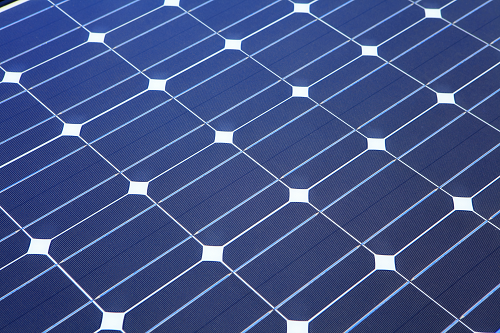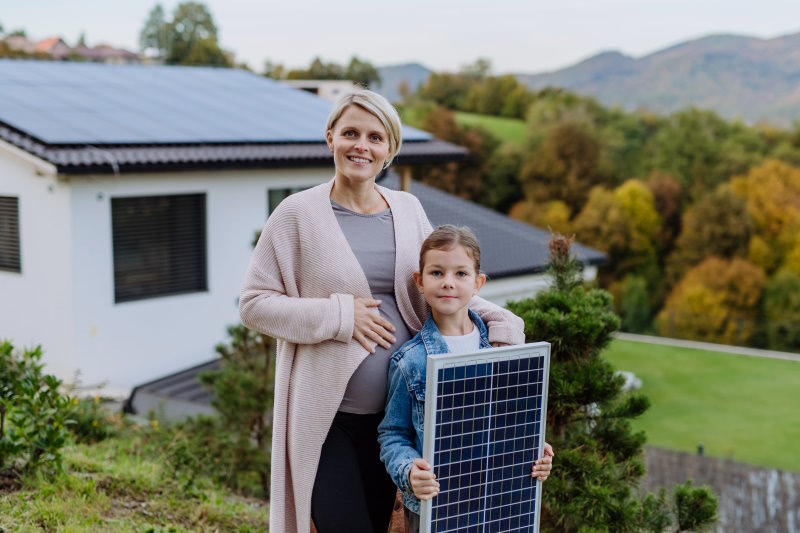In an era where sustainability meets innovation, the iStore heat pump stands at the forefront of transforming how homes manage energy for hot water production. Leveraging advanced air-to-energy technology, this cutting-edge hot water system not only promises remarkable energy efficiency but also aligns with the growing demand for eco-friendly solutions in residential spaces. As homeowners increasingly seek ways to reduce their carbon footprint without compromising on comfort, the istore heat pump emerges as a pivotal tool in redefining domestic energy use, offering a sustainable alternative to traditional heating methods. We are committed to providing homeowners with sustainable energy solutions and products. We are leaders in solar panels and solar batteries and as part of our all-electric home power, we are introducing the istore air to energy heat pump hot water systems.
This blog delves into the mechanics of air-to-energy heat pump hot water systems, highlighting how the iStore heat pump harnesses this technology to optimise hot water production. It further explores the synergy between istore heat pumps and solar integration, uncovering the potential for maximal energy savings. Additionally, the environmental impact and sustainability benefits of adopting such a system are examined, providing a comprehensive overview of its significance. By guiding homeowners through the process of choosing the right system for their needs, this piece aims to inform and empower readers to make informed decisions about their hot water solutions, marking a step forward in the journey towards a more sustainable and energy-efficient future.
What is an Air to Energy Heat Pump Hot Water System?

An air to energy heat pump hot water system operates on a principle similar to that of a refrigerator, but in reverse. It extracts heat from the surrounding air, amplifies it, and transfers it to water. This process involves a compressor that moves a refrigerant through a cycle, absorbing heat from the air and releasing it into the water. The system’s efficiency is highlighted by its Coefficient of Performance (COP), which often exceeds traditional heating methods, making it several times more energy-efficient.
Benefits of Using Air to Energy Systems
One of the primary benefits of using an air to energy heat pump hot water system is its remarkable energy efficiency. These systems can reduce hot water expenses by up to 65%, significantly lowering household carbon footprints and aligning with global sustainability efforts. Additionally, they offer a consistent hot water supply, require minimal maintenance, and are safer as they do not use flammable gases or open flames.
How It Differs from Traditional Hot Water Systems
Compared to traditional gas and electric hot water systems, air to energy heat pumps are more energy-efficient as they do not generate heat through combustion or electrical resistance. Instead, they transfer heat from the environment, which consumes less energy and reduces operating costs. This method not only ensures a lower environmental impact but also provides enhanced safety and ease of installation.
Maximising Savings with Solar Integration

Integrating solar photovoltaic (PV) systems with air-to-energy heat pumps, like the iStore heat pump, can significantly reduce operational costs and enhance sustainability. Solar panels can diminish the dependency on the electrical grid, making the heat pump systems nearly 100% sustainable. By combining these solutions, homeowners can enjoy optimal operations and savings based on real energy consumption.
Federal and State Government Incentives
Governments offer various incentives that make solar integration more feasible. The Federal and State Governments provide rebates or incentives for solar power, hot water upgrades, and batteries, which can substantially reduce the upfront costs. For instance, the Victorian Government’s Solar Homes Program offers significant incentives for installing solar systems, including rebates and interest-free loans.
Potential Savings and ROI
The integration of solar PV systems with heat pumps not only reduces electricity bills but also increases the overall return on investment (ROI). Homeowners can achieve substantial savings, with potential annual savings leading to a break-even point in about 7 to 8 years or less. By leveraging these technologies and incentives, homeowners can significantly lower their energy costs while contributing to environmental sustainability.
Environmental Impact and Sustainability
By utilising renewable energy sources, such as heat from the air, heat pump hot water systems significantly lower greenhouse gas emissions compared to traditional systems that rely on fossil fuels. A switch from conventional electric water heaters to heat pumps can reduce a household’s carbon footprint by up to 75%, equivalent to not driving for 10 months or adopting a plant-based diet.
Supporting Renewable Energy Adoption

Heat pumps are pivotal in the transition towards eco-friendly heating solutions. By extracting heat from ambient air or the ground, these systems use less energy and avoid combustion processes, thereby supporting the growth of renewable energy sources and reducing greenhouse gas emissions. This method not only contributes to a healthier planet but also promotes sustainable development in local communities by reducing the demand for electricity and natural gas.
Future of Sustainable Hot Water Systems
The future of water heating technology is promising with continuous advancements in heat pump efficiency and the use of environmentally friendly refrigerants. These innovations help in achieving higher energy efficiency and reducing the environmental impact of heating systems. Moreover, with policies like the Rapid Electrification scenario, domestic hot water systems could slash their emissions by more than 90% by 2035, highlighting the potential of heat pumps to significantly lower energy bills and enhance sustainability.
Choosing the Right System for Your Home
Assessing your hot water needs involves evaluating the number of people in your household, the type of shower heads you have, and your usage patterns. It’s crucial to consider the climate and temperature of your area as well, as these factors significantly influence your hot water requirements. Understanding system specifications is essential. Opt for heat pump hot water systems with high Energy Star ratings or positive customer reviews to ensure energy efficiency. Additionally, consider the physical space available for installation to avoid any structural adjustments.
Conclusion
The new kid on the block in the world of hot water systems – air to energy heat pumps are a game-changer in sustainable home energy solutions. By magnifying the efficiency of harnessing air to energy technology, this innovative system not only provides a greener alternative to traditional hot water heating methods but also aligns with worldwide efforts to minimise environmental footprints. The integration of solar panels further amplifies potential energy savings, offering a compelling proposition for homeowners seeking to optimise their energy use and invest in the future of home heating.
The significance of choosing the right system for one’s home cannot be overstated, with considerations ranging from household needs to environmental conditions playing a crucial role in maximising benefits. The journey towards adopting more sustainable energy solutions such as the iStore heat pump heralds a promising shift towards reducing carbon emissions and promoting renewable energy sources. As we continue to witness advancements in technology and increased governmental support through incentives, the pathway to a more sustainable, energy-efficient future becomes increasingly clear, empowering homeowners to make impactful decisions for both their households and the planet.
FAQs
How effective is the iStore heat pump in saving energy?
The iStore 270 heat pump is considered the top choice for energy-efficient hot water systems, boasting a Coefficient of Performance (COP) of 4.1. This high efficiency can lead to energy savings of up to 70%, making it a highly effective solution for reducing energy consumption.
Which is the better option: the iStore 180L or the 270L model?

Comparing the iStore 180L and 270L models, the 270L version has a larger tank that requires twice the energy (1kW) for the compressor to operate. The expected energy usage for the 270L model could range from 3kWh to 4kWh. Additionally, the upfront cost of the 270L model is approximately $300 more than that of the 180L model, indicating higher running and initial costs for the larger capacity unit.
Who is behind the creation of the iStore heat pump?
The iStore heat pump is produced by an Australian company that is both owned and operated within the country. This company has over a decade of expertise in the heat pump sector, indicating a strong background in developing and manufacturing these systems.
How does the iStore heat pump function?
The iStore heat pump operates on a unique “AIR TO ENERGY” technology, which significantly lowers electricity expenses, particularly when used alongside a solar PV system. This technology captures thermal energy and efficiently converts excess solar energy, produced by solar panels, into hot water. This process not only optimises the use of solar energy but also contributes to substantial savings on electricity costs for homeowners.




